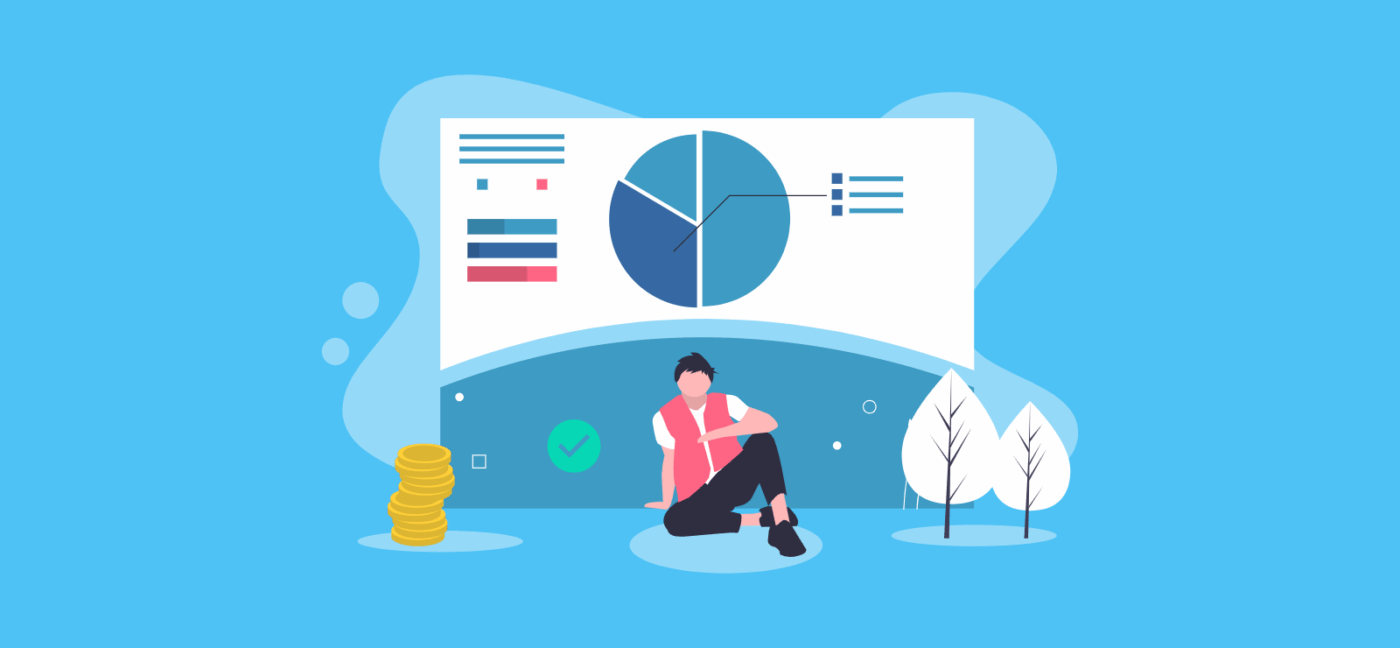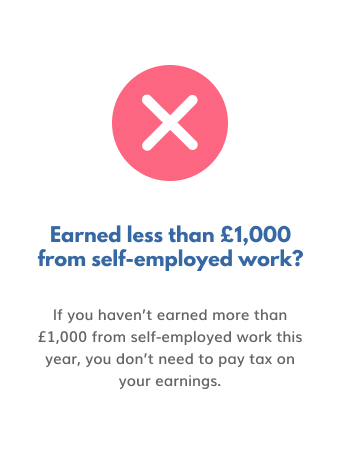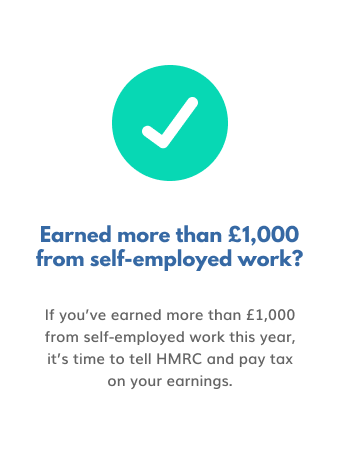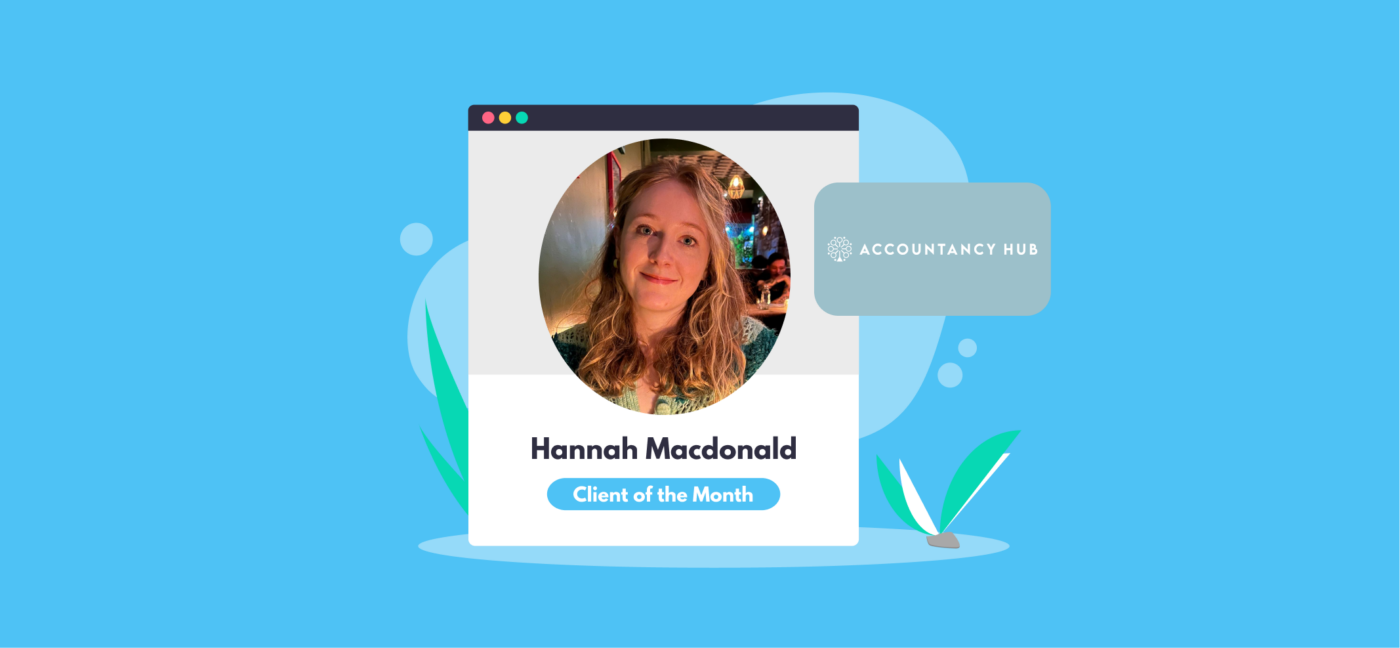

Can I Use the Trading Allowance?
You can use the trading allowance even if you receive an income from other sources, such as an employer. For example, you could earn a salary from a full-time job, and still use the trading allowance against your self-employed income (but not against your wages, sorry!).
What is the trading allowance?
The trading allowance is a type of tax-free allowance which you can use against trading or casual income. If you’re an individual setting up a full-time sole trader business or considering a side-hustle hobby business in your spare time, the trading allowance can have an impact on your reporting requirements, and how much tax you need to pay. The allowance was introduced to support individuals earning a relatively low amount from casual trading or miscellaneous income.
How much is the trading allowance?
The trading allowance is £1,000 for the 2025/26 tax year. It means that you can earn up to a total of £1,000 from self-employment or miscellaneous activity in a tax year, and won’t need to tell HMRC about it or pay tax on the income. Remember that it’s a total for the year, though! You won’t get a separate allowance for each type of income.
The trading allowance applies to your gross income, before deducting tax and expenses. For example; you have business income of £1,500 in a tax year. You’ll need to register with HMRC and submit a Self Assessment tax return, even if you have £700 of expenses which reduces your profit down to £800.
The difference between profit and income
Whilst the terms profit and income are sometimes used interchangeably, they mean very different things.
- Income is also known as gross revenue – it’s the money you receive as a business during a given period
- Profit is the amount you have left over after deducting expenses. This is the amount you really make
What happens if my earnings go above the threshold?
You’ll need to register for Self Assessment as a sole trader if your self-employed or casual income goes over the £1,000 trading allowance threshold in a tax year.
Once registered, you’ll need to submit Self Assessment tax returns to tell HMRC about the money that you earn, so they can work out if you have any tax to pay.


The difference between trading and miscellaneous income
This can be a tricky one to navigate, but it really depends on the nature and source of the income. For example, trading income is usually from core business-driven activities like buying and selling goods or supplying services. Essentially, anywhere you intend to make a profit will likely fall under trading income. This type of income is usually regular.
Miscellaneous income is often more irregular and not linked to any business activities. Think of it as things like interest earned on a business savings account, or income you receive from selling old work equipment, or penalty fees you’ve collected from late paying customers.
| Trading Income | Miscellaneous Income | |
| Source of income | Core business activities | Non-core business activities |
| Regularity | Regular | Irregular |
| Common examples | Sales of goods and services | Fines, one-off asset sales, interest |
But why do we even mention it? Because it’s well worth checking if your income meets HMRC’s ‘badges of trade’. If it does, it’ll be classed as trading income meaning you’ll need to pay both income tax and National Insurance contributions on any profits you make once you use up all your tax-free allowances. If your income is classed as miscellaneous, you will only need to pay income tax.
Can I still claim the trading allowance on my tax return?
You can still claim the trading allowance even if you go over the threshold and need to register for tax. This can be useful because your tax bill is worked out using the amount which is left over after deducting either the £1,000 trading allowance or any allowable expenses.
It’s up to you whether you claim tax relief on your allowable expenses or the trading allowance, so choose the one which gives you the biggest tax deduction for that year! For instance:
- If your expenses total £1,200, this is more than the £1,000 allowance so claiming these gives you a bigger reduction on your tax bill
- If your expenses for the year are £750, this is less than the £1,000 allowance so claiming the trading allowance on your return will be more useful
In the following examples, a basic rate taxpayer earns £2,000 from their side-hustle during the tax year. Because their total miscellaneous income is more than £1,000 they’ll need to register for Self Assessment.
In example one they decide to claim the trading allowance so this is deducted from their income. In example two they claim £750 of allowable expenses, and in example three they claim £1,200 allowable expenses.
| Example One | Example Two | Example Three | |
| Total self-employed income for the year | £2,000 | £2,000 | £2,000 |
| Amount to deduct | £1,000 Trading Allowance |
£750 Allowable Expenses |
£1,200 Allowable Expenses |
| Total remaining | £2,000 – £1,000 = £1,000 |
£2,000 – £750 = £1,250 |
£2,000 – £1,200 = £800 |
| Income tax to pay (Total remaining multiplied by 20% basic rate of income tax) |
£200 | £250 | £160 |
The examples show the difference that claiming either the trading allowance or your allowable expenses can make to your final tax bill!
Running a business and need an accountant? Call us on 020 3355 4047 or get an instant online quote.
Want to learn more?
Subscribe to our newsletter to get accounting tips like this right to your inbox

Read more posts...

February 2026 Client of the Month: Accountancy Hub
27th February 2026This month we spoke to Hannah, founder of Accountancy Hub. Accountancy Hub | Instagram Hey Hannah! Tell us about your business…
Read More
Paying Yourself a Salary from Your Limited Company
26th February 2026Being a director means you’re legally separate from your limited company even if you’re also the owner, so you’ll need to decide…
Read More
How Do Footballers Pay Tax?
24th February 2026We all know top-flight footballers do alright. But how does tax work for professional footballers? Is it treated as self-employed income, or…
Read MoreConfirm Transactions
The number of monthly transactions you have entered based on your turnover seem high. A transaction is one bookkeeping entry such as a sale, purchase, payment or receipt. Are you sure this is correct?
Please contact our sales team if you’re unsure
VAT Returns
It is unlikely you will need this service, unless you are voluntarily registered for VAT.
Are you sure this is correct?
Call us on 020 3355 4047 if you’re not sure.
MTD IT Quarterly Updates
Your final, end of year MTD Income Tax submission is included in your fee, without this add-on service.
We would recommend you submit the quarterly updates yourself using Pandle or alternative bookkeeping software.
However, if you would prefer us to submit these quarterly updates for you, there is an additional fee of £35.00 per month.
Call us on 020 3355 4047 if you’re not sure.
Bookkeeping
You will receive our bookkeeping software Pandle for free, as part of your package.
You can use this to complete your own bookkeeping, or we can provide a quote to complete your bookkeeping for you.
Please select and option below:
Call us on 020 3355 4047 if you’re not sure.


When did the hobby allowance come in
Hi Charles,
The trading allowance was introduced at the start of the 2017/18 tax year, on 6th April 2017. I hope this helps!
Best wishes
Elizabeth
My daughter is employed by a school but the after school clubs she runs are paid to her separately by a charity. She knows she need to set up as a sole trader but would she be able to deduct the £1000 trader allowance as she is employed aswell.
Hello Emma Thanks for your message! Yes, your daughter can still use the trading allowance for self-employed income, even if she also employed. As a side note, it’s only possible to claim the trading allowance as long as she doesn’t also claim her expenses (one or the other, not both), so it might be worth your daughter calculating the total of her allowable expenses. If the total is more than the £1,000 trading allowance then it will be more beneficial to claim tax relief on those, rather than the allowance. I hope this is useful, but do let me know… Read more »
Hi Elizabeth, Thank you so much for the advise, we really appreciate it.
Emma
Hi. My wife has done some work for me to help me out, can she use the trading allowance? She has a full time employed job.
Hi Steve
Thanks for your message. Without knowing the full situation, it’s tricky to say for sure. Generally, the trading allowance is a £1,000 allowance available against self-employed income, and can be used even if the tax payer has other income (such as working for an employer as well as having self-employed income). I hope that makes sense, but do chat to one of the team if you’d like more help. Click the live chat button on screen, or call 020 3355 4047 if you need us! Have a lovely day.
Best wishes
Elizabeth
Im a hobby baker looking at The Trading Allowance to see if it would be worth doing as I don’t take money at the moment for the cakes made.
It states under a £1000 Income
Would I be taking into account the ingredients bought
ie
£10 ingredients sold for £20
So made £10
Or
Or would I not be able to include the cost of ingredients
Hi Julie
The trading allowance is based on the amount that you earn before deducting anything (that is, all of your self-employed income, before you take off any costs like ingredients). So, if you sell for £20, that’s the amount of income, even though the profit is £10.
I hope that helps, but if you want to chat to the team about anything, just call 020 3355 4047 or use the live chat button and we’ll do all we can to help!
Best wishes
Elizabeth
Hi I am a retired architect (was self employed) and have been offered a small amount of money (£150) to help a friend on an architectural project –would this qualify for the trading allowance? I pay tax on my pension
Hi Neil
Thanks for your message! Yes, if your income from self-employment is less than the £1,000 trading allowance, you won’t need to register for Self Assessment or pay tax on it. If your self-employment income goes above the £1,000 threshold, you will need to register for Self Assessment, and report your income to HMRC.
I hope this answers your question, but just let us know if need any help with anything.
Best wishes
Elizabeth
Soul Band of 8 musicians offered to play at a venue for £1200. Money will be split 8 ways. That will be £150 each. all musicians are employed in other line of work and paying taxes. will this be subject to Sole Traders Allowance allowing each member the potential to earn £850 without being taxed? the venue have asked if we are VAT registered, how should I respond?
Hi Ed Thanks so much for your message! The trading allowance is an individual allowance, so each individual member of the band is entitled to earn up to £1,000 (each) of self-employed income in a tax year before they need to tell HMRC or start thinking about tax or tax returns. So, even if someone has a full time job and earns lots of money from their employer, they can still use the trading allowance against self-employed income up to the £1,000 threshold. The tricky bit here is showing that the band’s earnings are split between each member, so ideally… Read more »
Hi
I have done private hire as a side job in the last financial year as I work full time and this was over the the trading allowance however, I plan to do this again this tax year but plan to keep it under the £1,000 trading allowance, the question is can I used this allowance every tax year?
Hi
Thanks for your message. The £1,000 trading allowance is an annual allowance, so this can be used against total self-employment income each tax year. Let us know if there’s anything at all we can help you with!
Best wishes
Elizabeth